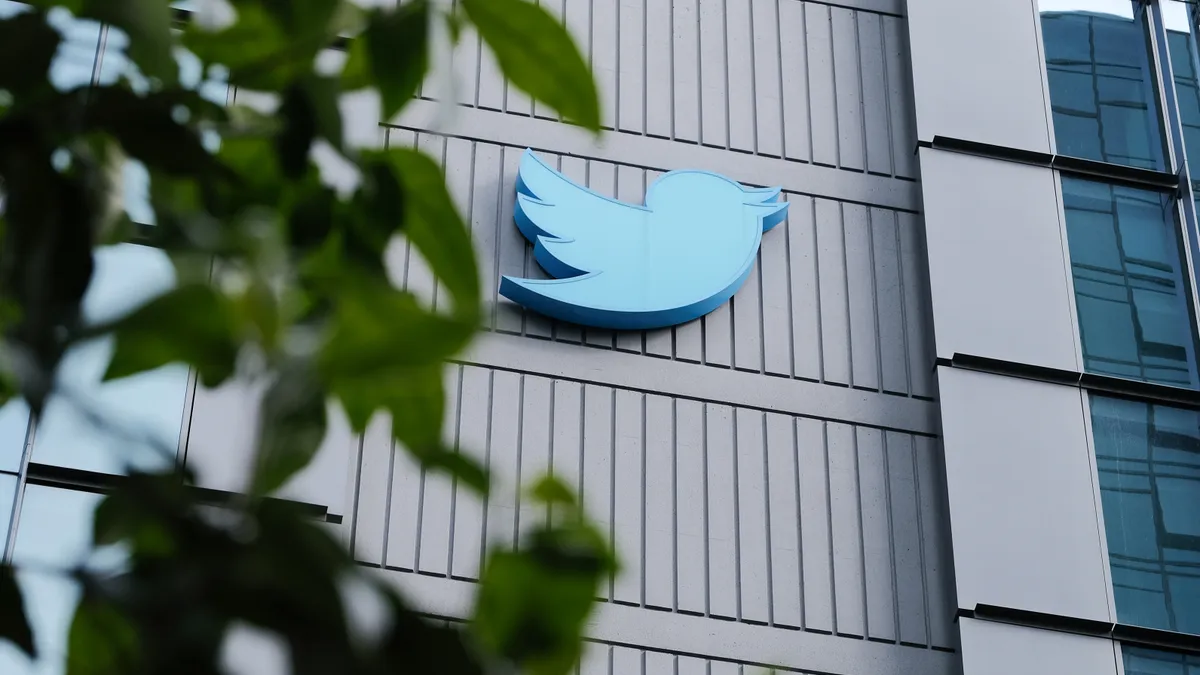Dive Brief:
- Some 2,000 employees let go when Elon Musk took over Twitter in late 2022 want the company to make good on its commitment to cover their severance pay and in some cases resolve discrimination claims, but the company won’t come to the table, a former employee says in a lawsuit seeking class action status.
- “Twitter has refused to engage in arbitration — despite having compelled employees to arbitrate their claims,” Fabien Ho Ching Ma says in a claim he filed on Monday in U.S. District Court for the Northern District of California in San Francisco.
- More than half of Twitter’s employees left after Musk gave them an ultimatum to continue on as an “extremely hardcore” worker or leave. For those who left, the company said, it would meet the terms of their severance agreements, but instead the company has dragged its feet, the petition to compel arbitration says.
Dive Insight:
Since the layoffs, Twitter prevailed in several federal class action cases against it to compel former employees to pursue arbitration rather than take their case to court. But thousands of employees who have tried to get their complaint heard by an arbitrator have hit a wall, the recent lawsuit says.
The company is holding out until former employees agree to split the cost of arbitration with it, but under the Judicial Arbitration and Mediation Services (JAMS) rules the company agreed to, it’s responsible for all of the costs of arbitration except for the filing fee, which the complainant pays. Twitter said it would cover arbitration costs in California and a few other states, including Nevada and Oregon, but not in others.
“Despite knowing that JAMS rules require employers to pay the full arbitrator fees in employment cases under the Minimum Standards, Twitter submitted a letter to JAMS’ General Counsel, Sheri Eisner, requesting that all arbitration fees be split equally among the parties,” the lawsuit says.
Counsel for claimants “quickly objected” to Twitter’s position, the lawsuit says, and JAMS reaffirmed in a letter to the company that it couldn’t arbitrate if the company didn’t follow the minimum standards.
Twitter doubled down in response to the JAMS letter, saying it wouldn’t arbitrate claims outside of California, and it listed almost 900 pending arbitrations outside of the state that it wouldn’t cover.
In response, JAMS canceled the arbitration conferences and hearings that were scheduled.
Severance pay
Under the terms of the merger agreement Musk and Twitter signed in April 2022 when the acquisition was being negotiated, Twitter is supposed to give laid-off employees who work through the transaction, under their severance package, two months of salary, accelerated vesting of their restricted stock, payment of prorated bonuses and continued contributions to their healthcare plans.
After the deal was completed and employees let go, Musk offered far less, according to an earlier lawsuit on behalf of some of the laid-off workers: one month of salary, no accelerated vesting of stocks, no bonus and no contributions to their healthcare plans,
Akiva Cohen of Kamerman, Uncyk, Soniker & Klein, who represented a number of laid-off employees in that earlier lawsuit, said it would be cheaper for Twitter to honor the severance agreements rather than pay the costs of arbitrating each one individually.
“You have time to avoid all this,” Cohen said in a letter to Twitter last year. “You can still choose to keep your word.”
By trying to force former employees to cover half the cost, Twitter appears to be signaling that arbitration is turning out to be the expensive approach to settling the claims that the earlier lawsuit said it was.

Twitter responded to a request for comment with an emoji.











